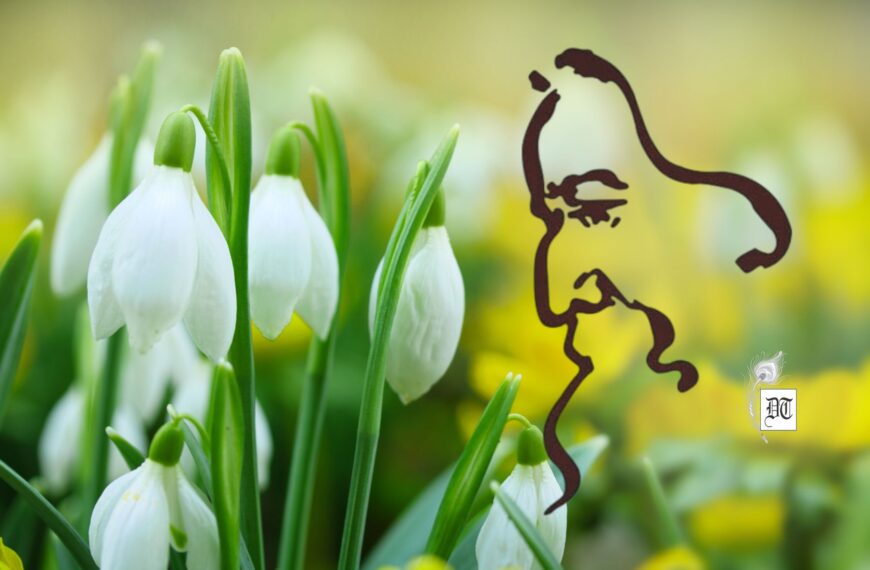Amjad Sabri was slayed by unidentified motorcycle borne assailants on Wednesday, June 22 afternoon, at Karachi. The news of his death cast a gloom across the borders. Many Bollywood celebrities broke into tears. His huge fan following in Pakistan mourned his untimely demise. For Urooj it was a personal loss. She tells us about a chance meeting with the celebrity singer in a Karachi hospital last year. How he had asked her to keep him in his prayers. It took her immense courage to come out of the grief. Here’s a personal tribute of the scribe to the great singer of Pakistan exclusively for Different Truths.
It was the Holy month of Ramadan. On Wednesday, June 22, at 4:10pm, I was surfing through the local news channels. Suddenly a news caught my eyes and I froze.
Renowned Qawwal Amjad Sabri was shot dead in Karachi, on Wednesday afternoon, after unknown assailants fired at his vehicle in the city’s Liaquatabad area.
Qari Saifullah Mehsud, spokesperson for the TTP Hakimullah Mehsud group, accepted the responsibility for the attack. Additional Inspector General Mushtaq Mehar told Dawn that the two men riding a motorcycle fired shots at the car, terming the incident as “targeted killing.” He said the motive of the killing is unknown as of now.
Sabri, 40, and an associate were travelling in a car in Liaquatabad 10 area, when unidentified gunmen fired at their vehicle, critically injuring him. The two were shifted to Abbasi Shaheed hospital immediately, where Sabri succumbed to his injuries. “Two riders used 30-bore pistols to shoot Sabri five times, the bullet to the head took the qawwals life. The attackers took the Hassan Square route to escape,” said DIG West. “We have cordoned off the area and will arrest the culprits using all our resources,” added the DIG.
Police officials recovered five 30-bore casings from the scene of the attack, which were sent for forensics. Both front side windows were shattered and three bullet holes could be seen on the front screen. Ghulam Ahmed, an eyewitness told SAMAA TV he saw two motorcycle riding men fire shots at one side of the car. “Then they turned and fired four shots on the other side of the car.”
Additional police surgeon Dr Rohina Hasan confirmed Sabri’s demise. He was shot thrice – twice in the head and once in the leg, police sources said. Senior Director Health Services Abbasi Shaheed Hospital also confirmed that Sabri was declared dead on arrival. Fakhre Alam, Chairman of Sindh Censor Board, has claimed in a tweet that Sabri had earlier submitted an application for security, but the home department did not act on it. However, an official source claimed the home department had received no such request. SSP Central also stated he is not aware of any such request.

The Sabri Legacy
Amjad Sabri was the nephew of qawwali icon Maqbool Sabri, who passed away, in 2011. Maqbool Sabri along with his brother, the late Ghulam Farid Sabri, formed a formidable qawwali group in the mid-50s and became known for their soul-stirring renditions of arifana kalam (mystic poetry). Maqbool’s nephew Amjad Sabri — who was tragically shot dead in Karachi — was keeping the family tradition alive and was one of the most sought-after qawwals of the country.
Almost whatever the Sabri brothers sang became an instant hit. But some of their most memorable and famous qawwalis were Bhar Do Jholi Meri, Tajdar-i- Haram and Mera Koi Nahin Hai Teray Siwa. They were equally well-versed in compositions made in the Persian language and sang Nami Danam Che Manzil Bood with equal ease and facility. The brothers’ rendition of Hazrat Amir Khusrau’s kalam was one of their marked areas of excellence. (Courtesy Dawn News)
https://www.youtube.com/watch?v=i1u3l413R_Y
A Personal Loss: Amjad Bhai in Eternal Sleep
For the world he was Amjad Sabri, the giant, the most famous Sufi singer and Qawwal. He was a celebrity. But, for me he was always Amjad Bhai. I met Amjad bhai last year, in August 2015 when my father was admitted to a private hospital here in Karachi for his open heart surgery. After the surgery was over I was sitting on the stairs. I had gone through long tense hours of waiting, when I saw a tall broad man approaching in blue shalwar kurta and hair tied in a pony. By the time I gathered my senses he had come so near that I recognized him suddenly and called him ‘Sir’, jumping on my feet, breaking my reverie. He stopped. He replied with a smile. That was one of the most comforting smiles I had ever seen. “Did u call me, Sir,” he smiled again. “Ji, Ji,” I replied all enthusiastic and suddenly full of energy. “Call me bhai (brother) what is with Sir.” I felt very comfortable.
It was a brief meeting. Amjad bhai was visiting an ill relative of his. I told him that I was a huge big fan of his. “It is my wish to listen to you live someday.”
Amjad bhai replied positively with his ever lovely smile and asked me why I was visiting the hospital. I told him about my father’s surgery he prayed for his quick recovery and by the time he was leaving he kept his hand lovingly on my head. “Aaj se apny bhai ko bhi duaoon may yaad rakhna, beta” (from now onwards remember your brother too in your prayers) and God only knows how I remembered him, every time.
Even today, my first interaction with Amjad feels surreal. With the passage of time I learned to respect this simple man behind a towering legacy, who despite being diabetic, never let his own discomfort deter him from carrying on with his gruelling routine. He lived a life above worldly emotions, and did not consider his contemporaries as rivals. When singer Atif Aslam showed interest in singing the famous Qawwali ‘Tajdar-e- Haram‘, which was originally sung by Amjad bhai’s father, Amjad bhai not only permitted it, but also praised Atif for delivering a powerful and befitting rendition.
Today, as I sit grasping for words to explain the effect of a man over an entire generation, not just within Pakistan, I am reduced to asking what Mustafa Zaidi once did:
Main kis ke haath pe apna lahuu talaash karuun
Tamam shehr ne pehne huey hain dastaaney
(On whose hands should I find my blood?
Everyone in this city is wearing gloves).
©Urooj Murtaza
Pix sourced by author from the Net.




 By
By
 By
By

 By
By